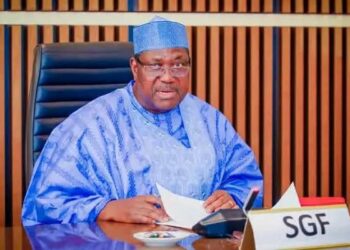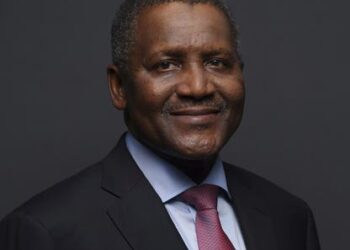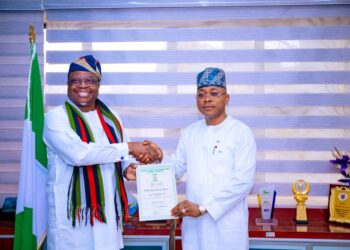By Angela Atabo
Abuja – Auwal Rafsanjani, Executive Director, Civil Society Legislative Advocacy Centre (CISLAC), has called for the activation of relevant laws that set limits to government debts.
Rafsanjani made the call at a Policy Dialogue on Modality for Setting Debt Limit, on Thursday in Abuja, organised by CISLAC, Christain Aid and Fiscal Responsibility Commission (FRC).
He said that the growing debt profile required a rein before the country plunge into bankruptcy.
According to him, it is time to activate relevant provisions in the Fiscal Responsibility Act to limit the public debt stock.
Rafsanjani said that the Debt Management Office has placed Nigeria’s Total Public Debt Stock as of June 30 at N42 trillion, about $103 billion.
He said while domestic debt stood at N26.23 trillion ($63.24bn), external debt stock was N16.61 trillion, about $40.06 billion.
The CISLAC executive director added that the debt was accumulated by Federal Government and the 36 states, including the Federal Capital Territory.
He observed that in the 2023 Federal Government budget proposals, the revenue and expenditure target were N9 trillion and N20 trillion, respectively.
“This results in a N10 trillion fiscal deficit, representing 4.78% of GDP, which is well above the 3% ceiling set by the Fiscal responsibility Act 2007.
“This deficit is expected to be financed by new borrowings of N8.8 trillion, privatisation proceeds N206.18 billion, and drawdown on bilateral and multilateral loans secured for specific development projects and programmes amounting to N1.77 trillion.
“On extrapolation, the total debt stock is projected to stand at about N50 trillion after the Minister of Finance, Budget and National Planning submits the approved detailed budget,” the CISLAC director said.
Rafsanjani said the FRC should implement relevant sections of the Act in line with its mandate, which include setting framework for public debt management, conditions and limits for borrowing.
“These mechanisms for the regulation of borrowing, namely, the setting of debt limit need to be urgently activated to provide the parameter for checks and control of the debt stockpile of all the tiers of government,” he added.
According to him, this will ultimately avert a national public debt crises of bankruptcy proportion.
Rafsanjani said the dialogue was to amplify and intensify actions, and elicit tangible responses, commitments and actions from the political class.
He said this should be in increasing production, raising revenue, reprioritising expenditure, drastically reducing the cost of governance and plugging avenues of fiscal leakages.
He said that CISLAC had inuagurated a research to highlight the Nigerian context and dimensions of indebtedness to private creditors for policy options and deliberate efforts to ending it.
Mr Victor Muruako, Chairman of FRC, said that the Fiscal Responsibility Act has provision for public debt limit.
Represented by Mr Mohammed Zailani, Director Human Resources and Adminitration, Muruako said that this was under Section 42 (1) of the Act.
He said that the section provides that the President shall, within 30 days from the commencement of the Act set overall limits for the amounts of consolidated debt of Federal, States and Local Governments.
“This, in pursuant to the provisions of item 7 and 50 of Part 1 of the Second Schedule to the Constitution and the limits and conditions approved by the National Assembly.
“Shall be consistent with the rules set in this Act and with the fiscal policy objectives in the Medium-Term Fiscal Framework”.
He said that the commission had written several times to the Finance Minister on the need to set overall limits for the amounts of consolidated debt of all tiers of government.
Muruako, however, said that the consolidated debt limits was yet to be determined due to non availability of required data.
This, he added, made it impossible for the commission to implement the provision of Section 42 (4) of the FRA.
The FRC chairman said that the current elevated debt of Subnational Governments, especially the one of states, has raised concerns about their capacity to sustain the levels of the debts.
He therefore said that the dialogue was imperative, as it would come up with parameters and mechanisms for checks and control of the nation’s debt stockpile as envisaged under the Act.
Muruako added that the dialogue would help in proffering solutions to the debt challenges in Nigeria .(NAN/vitalnewsngr.com)


















